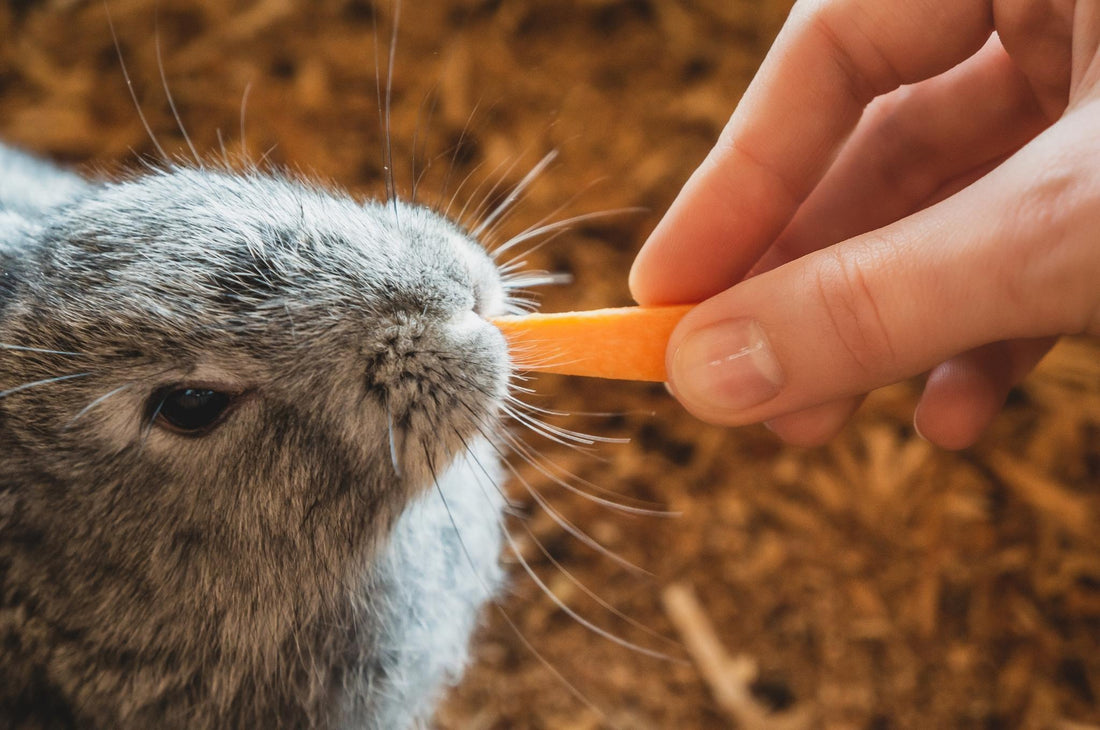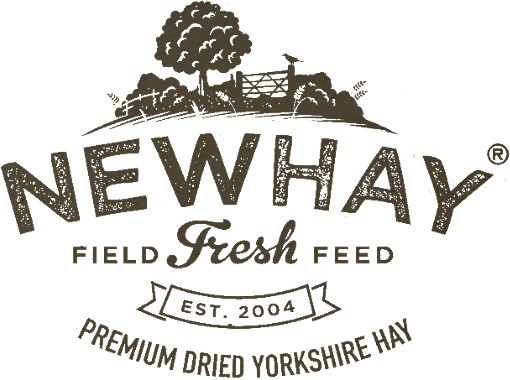
Rabbits need a variety of high-quality and healthy foods to ensure that they receive all of the nutrients they need to thrive. But what counts as good quality and healthy for a rabbit?
When you think of a good diet for humans, it involves a lot of fruit and vegetables. But a rabbit's digestive system is entirely different to ours. The best diet for your bunny is one that is as close to a wild rabbit's diet as possible, which usually involves a lot of grazing on grass. Being natural grazers, the bulk of your rabbit's diet should be made up of grass or a premium quality hay because the roughage and fibre in it keeps their digestive systems running smoothly, as well as providing heat for your bunnies.
However, rabbits love a bit of variety and once they are older than six months, supplementing their diet with some fruits and vegetables that are healthy and safe for them is a great way to treat your furry friend. But which fruit and veg can rabbits eat, and which should you steer clear of?
What vegetables can rabbits eat?
Rabbits can eat many vegetables, but not all vegetables are safe and healthy for them. Some can be consumed daily, while others need to be eaten in moderation as a treat. And others should be avoided altogether.

What vegetables can rabbits eat daily?
There are some vegetables that you can feed to your rabbit every day. However, their diet should still be mostly grass and hay. Keep any vegetables to less than 10% of their diet to ensure they are getting the very best nutrition.
- Curly Kale
- Broccoli
- Cabbage
- Spring Greens
- Courgette
- Sprouts
- Watercress
- Radishes
Dark, leafy greens are the very best vegetables to feed to your rabbit. Try mixing it up and getting some variety in there rather than providing them with the same leafy green every day.
What kind of vegetables can rabbits eat as a treat?
Many vegetables that people assume are good for rabbits are actually quite unhealthy for them if eaten regularly. Some of these might come as quite a surprise, so if you've been feeding your rabbit these daily, we recommend that you cut back to only occasionally feeding your rabbit these vegetables.
Carrots. Like all root veg, carrots are pretty high in sugar and not healthy for rabbits to eat regularly. This is the one that people are most surprised about when they first get a rabbit because everybody associates rabbits with carrots! Vitamin A in carrots can indeed be good for bunnies, but the high sugar content outweighs this benefit. Giving your rabbit carrots occasionally means they get some of the vitamin A benefits without overloading on sugar. Green carrot tops are better than actual carrots, as the leafy green carrot tops are low in sugar.
Chard. Although it's a dark leafy green, chard is high in a substance called oxalates which can be harmful to your rabbit if ingested in high quantities.
Spinach. Like chard, spinach is high in oxalates so it's best to only feed it to your bunny in moderation.
What vegetables can rabbits NOT eat?
Iceberg lettuce. Because iceberg lettuce contains lactucarium, which can be harmful if consumed in large quantities, rabbits can't consume a lot of it, so it's safer to avoid it completely.
Rhubarb leaves. All parts of the rhubarb plant are poisonous to rabbits.
Tomato leaves. These contain a substance toxic to rabbits that can be very dangerous if eaten in high amounts. It's best to avoid tomato leaves altogether.
Potatoes. Not technically a vegetable, potatoes are high is starchy carbs and are not a healthy food for rabbits to eat.

What fruits can rabbits eat?
Any fruit that is safe to eat for rabbits can be eaten only occasionally as a treat. Overfeeding your rabbit with fruits can seriously damage your rabbit's teeth due to the amount of natural sugars that they contain. Always remove any seeds and pips from the fruit before feeding it to your rabbit.
- Apples
- Grapes
- Pears
- Plums
- Strawberries
- Tomatoes, but NOT green tomatoes. Make sure the tomatoes are ripe and red and remove the seeds and the stem.
- Bananas
- Blackberries
- Blueberries
- Melon
- Papaya
- Peach
- Pears
- Pineapple. Pineapple is very high in sugar, so make sure not to overfeed your bunny pineapple.
- Raspberries
Berries like blackberries and raspberries are a good choice as they tend to have a lower sugar content than other fruits.
What fruits should rabbits NOT eat?
There are some fruits that are dangerous for rabbits to eat and could make them ill. Some fruits to avoid are:
Avocados. The high-fat content in avocados makes them a bad choice for rabbits.
Rhubarb. This bitter fruit can potentially be poisonous for rabbits so it's very important to avoid it.
Green tomatoes. These contain tomatine, which can be harmful to your rabbit.

How often can I feed my rabbit fruits and vegetables that are only to be given as treats?
'Occasional' and 'moderation' are words you will see mentioned when it comes to giving your rabbit a treat. But what does that actually mean? You should only be giving your rabbit a treat once a week. Any more than that and you could be causing them digestive distress or risking tooth decay.
When it comes to the question of what kind of vegetables can rabbits eat, the answer is plenty! When you incorporate some of the vegetables that rabbits can eat daily like spring greens, kale and broccoli, you're giving your rabbit a healthy and varied diet with lots of beneficial vitamins and minerals. You can also supplement your rabbit's diet with fruits and other vegetables as an occasional treat to keep them happy and healthy.
It's important to remember that just because your rabbit seems to enjoy all kinds of foods, that those foods might not be good for them. Just like humans enjoy the taste of foods that they may be sensitive or allergic to, rabbits will happily eat some fruits and vegetables that are not healthy for them.
Now that you understand which fruit and veg rabbits can eat safely, you can protect your pet's health and give them the best care. As always, make sure you give your rabbit lots of fresh water daily to prevent dehydration.
Discover more tips in our article about what to feed rabbits to keep your rabbit's digestive system in tip top condition and a spring in his step!

